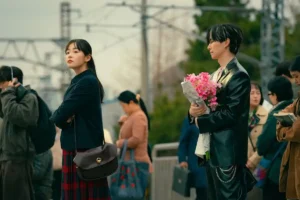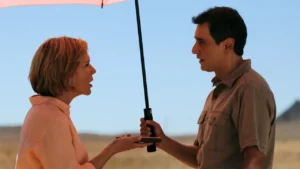This article discusses the And Tomorrow the Entire World ending, so it will contain major spoilers.
Julia von Heinz’s political drama And Tomorrow the Entire World ends not with a whimper, but with a bang. After rising violence over nearly two hours, the young revolutionaries decide to continue their journey towards political change, towards fighting right-wing Nazis gaining power in Germany. Starring Mala Emde as Luisa, a 20-year-old law student who joins an Antifa cell with one of her classmates, the film looks at a group of young people committed to change, whatever the cost.
And Tomorrow the Entire World — the ending explained
As von Heinz’s film blazes into its third act, more violence feels expected. More death seems imminent but actually doesn’t come to fruition, instead culminating in a reunion between Luisa and Batte (Luisa-Céline Gaffron) at the P91 space, the place she and her fellow protestors have called their home. While having a party, the police raid the backyard, a fulfillment of previous warnings and continued surveillance of their activities. It’s a stark contrast to the previous night’s events, which saw Luisa attend an alt-right, white supremacy musical session, with a man strumming a guitar, playing folksy sing-alongs with lyrics promising an end to Black and Jewish Germans.
Luisa and her friends link their arms as the police have formed a barricade, pulling them one by one out of the yard. Both metaphorical and physical in nature, the moment signifies a reason for these German students to exercise their right to resist. It gives them enough cause, at least in their minds, to take things to a level of violent legitimacy. Using the explosives she found in the Liste 14 secret headquarters, with newfound assurance from Batte, Luisa follows through on her previous thoughts, ones that concern the deaths and destruction of Liste 14 members and materials.
Luisa’s relationship with Alfa looks to still have legs, as the two circle one another while fighting for justice. They have similar upper-class backgrounds, similar goals in both schooling and enacting change, and a shared physical connection. Others in P91 will drop out, as the pressure mounts and criminal charges become a more frequent occurrence. But the fight is long from over, as seen by Dietmar’s presence in the film, an older, retired protestor.
As the credits to And Tomorrow the Entire World roll, with the actors’ names popping up on screen, this alt-right headquarters blows up. Assuming Luisa as the likely culprit, this event will trigger increasing tension between the two groups and between police presence focused on P91 and these mostly middle-class teenagers and 20-somethings. Luisa doesn’t seem to be slowing down in her mission to fight these oppressors, though she does seem to have lost a bit of sight of the reasons she joined Antifa. She has gone from fighting for someone to fighting against someone.




